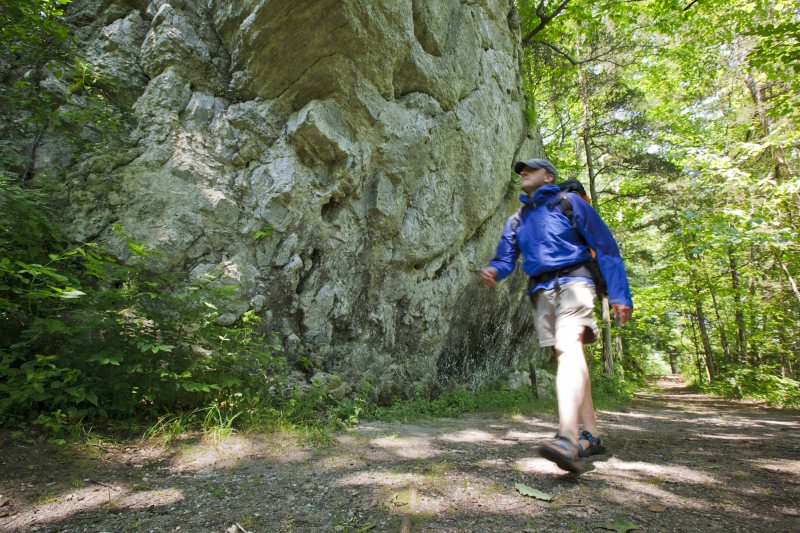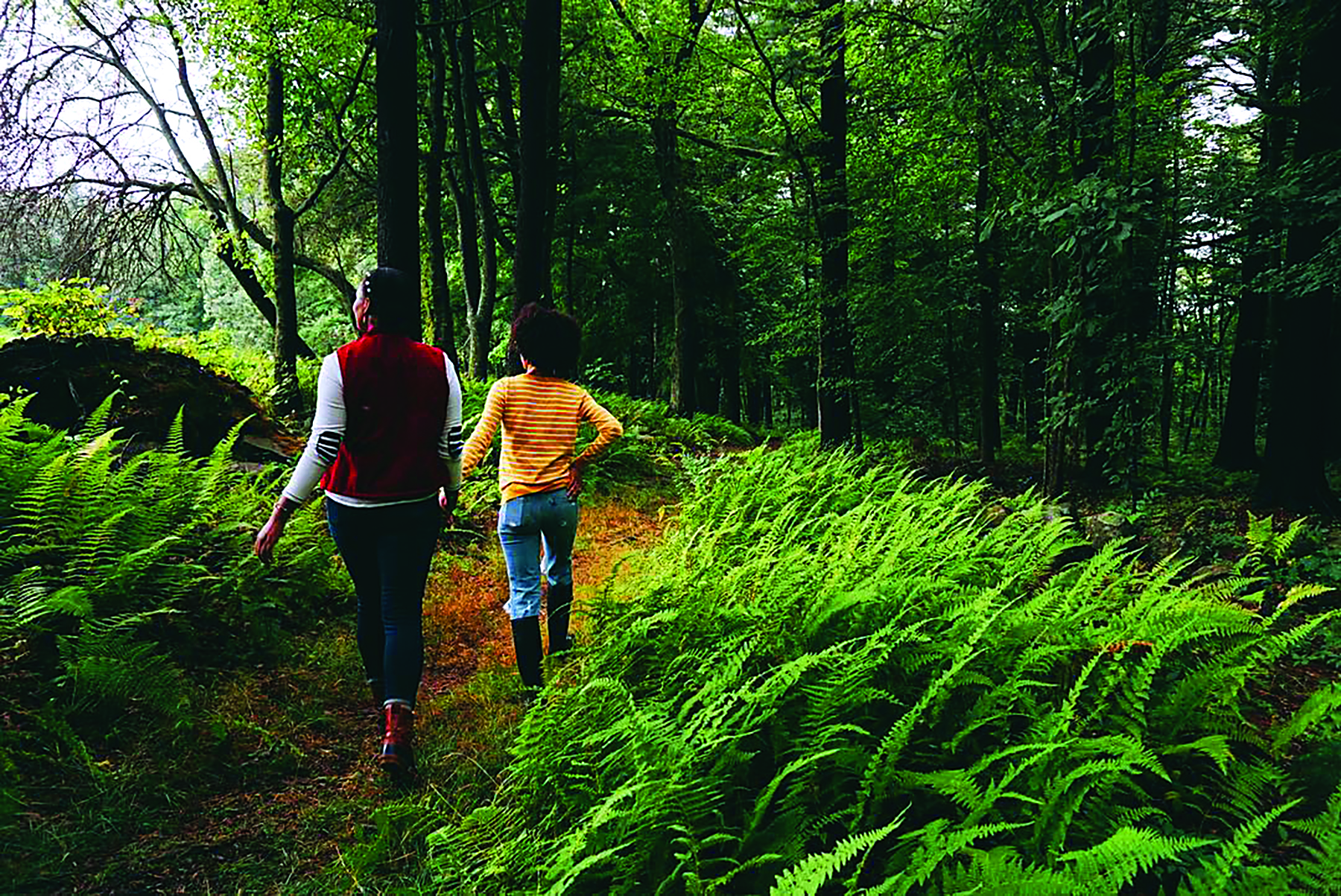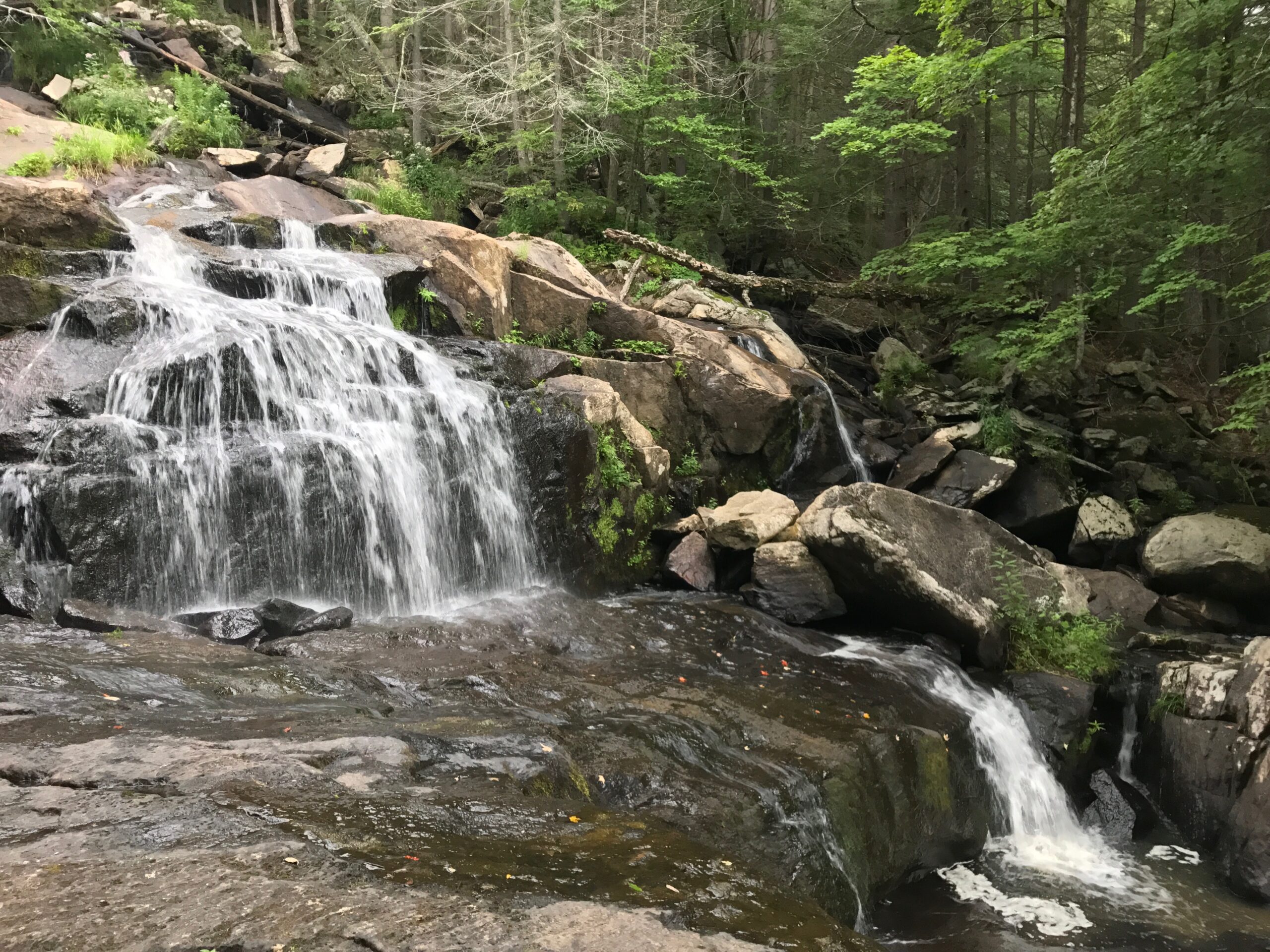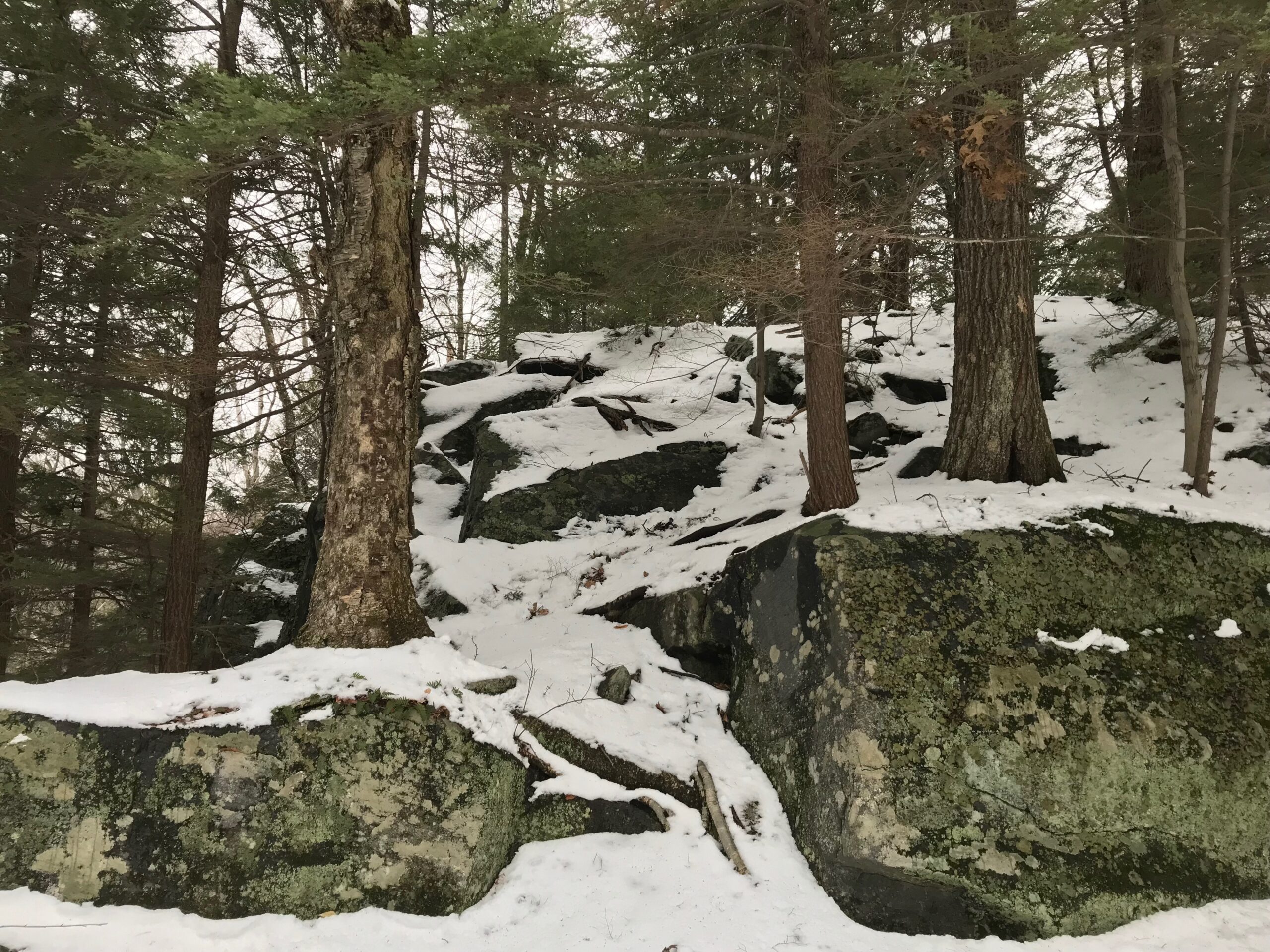Trustees is historically a dog-friendly conservation organization that balances public use and enjoyment with natural and cultural resource protection, and dog-walkers are among our most frequent visitors. At the same time, people and dogs pose a significant environmental burden on natural resources. In order to ensure habitat and resource protection, Trustees has undergone a detailed, multi-year assessment of the impact of increased visitation by people and dogs and, as a result, has established the following new guidelines and procedures for dog walkers.
If you have specific questions about the dog walking policy for a specific property, please search for that property and click on the ‘Regulations and Advisories’ tab which will give more detail around their dog walking policy.
Reservations that allow Off-Leash Dog Walking
Please note specific restrictions listed after the reservation name. Also please note: Some of these properties may require temporary on-leash rules during grassland bird nesting periods.
Appleton Farms Grass Rides, Hamilton
Charles River Peninsula, Needham
Cormer Woods, Mendon & Uxbridge
Crane Beach, Ipswich (off-leash allowed in marked zones only, from Oct 1 – Mar 31)
Notchview, Windsor (off-leash property-wide during non-ski season, and only south of Rte. 9 during ski season)
Old Town Hill, Newbury (limited areas, from Aug 16 – Mar 31; please avoid highly sensitive salt marsh and grassland habitats)
Ravenswood Park, Gloucester
Rocky Narrows, Sherborn
Rocky Woods, Medfield (zoned; off-leash allowed, except on Red Trail around Chickering Pond)
Shattuck Reservation, Medfield
Whitney & Thayer Woods, Cohasset & Hingham (off-leash west of Intersections 7 & 20; seasonal on-leash for Turkey Hill)
Areas excluded from Off-Leash designation:
- Resource Protection Areas
- Grassland Nesting Habitat (Apr. 1 – Aug. 15)
- Campgrounds/Inns
- Open Public Water Supply
- Entrance/Parking
- Parks, Estates, & Sensitive Historic/Cultural Sites
Resource Protection Areas: No Dogs
Resource protection areas are defined by a specific resource concern or visitor safety concern that cannot tolerate the presence and proximity of dogs or their waste. These trails require special signage to identify the area as No Dog, which will include rationale for the restriction. These areas include:
- Crop Fields, Food Gardens, Community Gardens, Food Production / Processing / Sale Facilities (Including Shellfishing Flats)
- Highly Sensitive Horticultural Resources
- Highly Sensitive Ecological Resources – Shorebird Nesting & Migratory Bird Habitat (April 1 – Sept. 30), Coastal Dune Habitat, and state-listed species protection
- Designated Children’s Play Area
- Historic/Cultural Buildings & Museums
Guidelines for Dog Walkers
While dogs continue to be welcome at the majority of Trustees reservations, some properties like farms, beaches, and public gardens have been changed to become more restrictive to dogs in order to protect livestock, farm fields, wildlife nesting grounds, and horticultural resources. Other natural, more remote recreational sites have been changed to allowing dogs off-leash at all times. The majority of reservations remain or have been designated as on-leash, some with dog-friendly zones or special year-round or seasonal designations, to accommodate the specific needs of the property and its visitors.
Be Mindful
When visiting a Trustees reservation with your dog, please practice the following mindful dog-walking behaviors. (Note: During the Covid-19 crisis, Trustees recommends that dogs be kept on-leash even in those areas that allow off-leash dog walking—it is safer when dogs are not allowed to interact with other people or their dogs.)
Recognize
Many of our visitors tell us they prefer not being approached by unleashed dogs, regardless of the owners’ pleas that “my dog is friendly, don’t worry!” Their enjoyment of the property is as important as yours or your dogs. Recognize that others might not be comfortable around dogs; share the trail and ask first before letting your dog approach others.
Respect
The Trustees mission is to protect and preserve our landscapes, flora, and fauna, and our ecologists and stewards conduct ongoing projects at the vast majority of our reservations to improve habitats, repair trails after storms, remove invasive species, and more. Respect our conservation efforts; show that you support our work by keeping your dog from disturbing wildlife and vegetation.
Remove
Any conversation about dog-walking involves the unavoidable subject of poop. Besides being unsightly and an annoyance when it is left on our trails, doggy-do is bad for the environment and for wildlife. Dog owners know that one of the responsibilities of caring for their pets is taking care of what they leave behind. Remove your dog’s poop; bring bags, pick it up, and carry it out!
Policy Guidelines
The Trustees dog policy seeks to achieve excellent visitor experience and access, compatible with resource conservation and protection by
- establishing responsible, common-sense and mindful dog walking manners
- requiring dogs to be leashed on all “Multi-Use Trails”
- allowing an off-leash experience on Primary Use Trails for dog walking
- restricting dog access on trails and properties with specific resource protection concerns
Multi-Use Trails: On-Leash Dog Walking
The majority of trails or trail systems require dogs to be on-leash to accommodate the experiences of a diversity of recreational trail uses. Having dogs on-leash limits the chances of unwanted interactions among other recreational users. To be sensitive to the experiences of all other users, dogs are required to be on-leash.
Primary Use Trails: Off-Leash Dog Walking
Off-leash dog walking is a popular recreational activity, that is increasingly more difficult to provide on conservation lands in Massachusetts. With an understanding that off-leash dog walking can negatively impact sensitive resources and the experience of other visitors; properties where we allow for off-leash dog walking will be actively managed and monitored.
Service Animals
The Trustees follows state and federal regulations regarding Service Animals and Public Accommodations. State regulations are covered under General Laws Part IV, Title I, Chapter 272, Section 98A and are administered by the Massachusetts Office on Disability. Federal laws are enforced by the Department of Justice under the Americans with Disabilities Act (ADA).
In summary, any places that are open to the public shall permit service animals to accompany people with disabilities anywhere members of the public are allowed to go. Service animals are not required to be certified, wear a vest or badge, demonstrate the service provided, and the owner may not be asked to provide documentation of disability. Emotional support, therapy, comfort, and companion animals are terms used to describe animals that provide comfort just by being with a person. Because they have not been trained to perform a specific job or task, they do not qualify as service animals under the ADA.
The ADA requires that service animals be under control of the handler at all times. The service animal must be harnessed, leashed, or tethered while in public places unless these devices interfere with the service animal’s work or the person’s disability prevents use of these devices. In that case, the person must use voice, signal, or other effective means to maintain control of the animal. If a service animal is out of control and the handler does not take effective action to control it, staff may request that the animal be removed from the premises.




